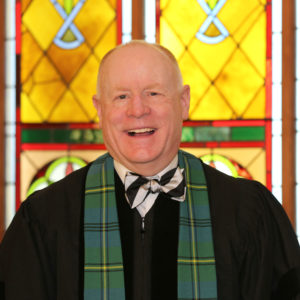Redemption
by Charlie Smith
In The Kite Runner, a 2003 novel by Afghan-American author Kaled Hosseini, there is a phrase that stirs the heart and drives the plot – “There is a way to be good again.” The central character, Amir, betrays his boyhood friend, Hassan, in a way that leads to tragedy and suffering. The knowledge of his transgression plagues him. As an adult, he receives a note from a family friend who knew something of what had happened. The note contains the simple words: “There is a way to be good again.” This leads him on a journey on behalf of Hassan who, with his wife, was murdered years before. At great risk to his own life, Amir locates and rescues Hassan’s son.
“There is a way to be good again.” The phrase taps into that deep yearning we all have to be better than we are. It reveals the deep doubt we harbor that there is no real hope of becoming other than what and who we have become. For Christians, Christmas, when we celebrate the birth of Jesus Christ, is uniquely suited to being caught up in the possibility that there is something to the claim of redemption. In a Feasting on the Word reflection, minister David J. Wood says Christmas rekindles the hope there is a way to be freed from the entanglements of our failings and fallings. It is not that they do not matter – it is that they do not have to determine or predict the flow of our lives.
Earlier this month, I quoted from Ebenezer Scrooge, from A Christmas Carol by Charles Dickens. That classic tale, too, teaches the power of love, expressed in giving, to change and redeem and save human life. To make a difference in individual lives and in society. To know what it means to be fully and truly alive. To love and to know you are loved.
“I am here tonight to warn you, that you have yet a chance and a hope,” warns the ghost of Jacob Marley – Scrooge’s long-dead business partner and only friend – on Christmas Eve, dragging his money boxes and clanking chains behind him. Scrooge is visited that night by three spirits who show him his past; his pitiful, mean, and greedy present; and a future after he is gone. Scrooge awakens a changed man, converted, redeemed. Saved. It’s Christmas morning. He sends a boy to buy the biggest turkey in the butcher’s window to be sent to Bob Cratchit’s house and gives the boy an extra schilling. He becomes almost giddy with happiness, wishing startled neighbors and shopkeepers a Merry Christmas. He asks a man he treated harshly to forgive him. “My dear Mr. Scrooge, are you serious?” asks the man. Scrooge goes to church, pats children on the head, and finds great pleasure seeing people celebrating Christmas. He goes to his office, where Bob Cratchit is working on Christmas morning, sends him home immediately, raises his salary, and accepts Cratchit’s invitation to Christmas dinner.
The last page of A Christmas Carol: “Scrooge was better than his word. He did it all and infinitely more – and to Tiny Tim, he was a second father. He became a good friend, and as good a man, as the old city knew. Some people laughed to see the alternation in him, but he let them laugh. … His own heart laughed. … And it was always said of him that he knew how to keep Christmas well.” Dickens concludes: “May that be said of us as well. And so, as Tiny Tim observed, ‘God bless us, every one!’ ”
Scrooge was transformed from a stony to a generous heart. Dickens’ book, written in 1843, was transformative in another way: Before A Christmas Carol, the December 25th holiday wasn’t that big of a deal. Christmas had fallen into disfavor, undermined by lingering Puritanism and the cold modernity of the Industrial Revolution. It was a harsh and dreary age, in desperate need of spiritual renewal. Dickens saw an opportunity to elevate Christmas as a symbol of hope and renewal. And in so doing, he breathed new life into the holiday.
At the center of Scrooge’s transformation is love – because love changes people. Love of the compassionate, self-giving variety transforms hearts.
Merry Christmas to all!

